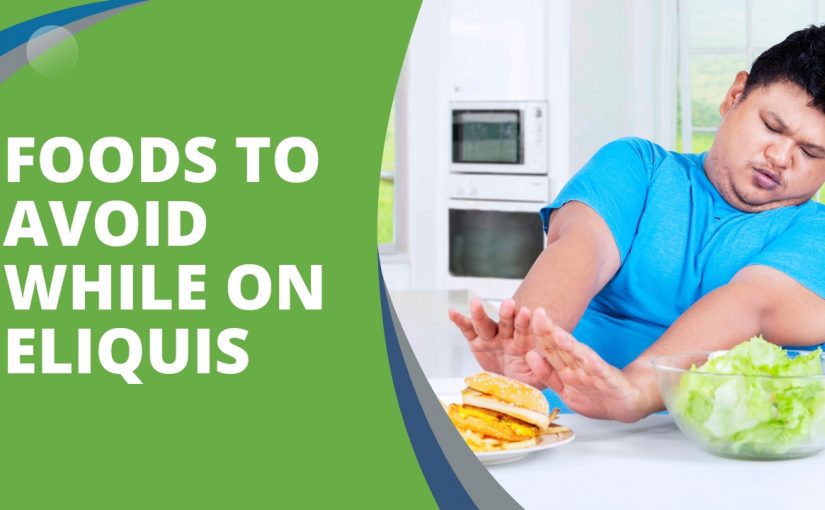What foods to avoid while on Eliquis?
Eliquis (Apixaban) is a medication used for preventing serious blood clots from forming owing to after hip/knee replacement surgery or a certain abnormal heartbeat (atrial fibrillation). With atrial fibrillation, fraction of the heart fails to beat the way it must. This may give rise to the formation of blood clots, which may travel to other body parts (like the lungs or legs) or increase your risk for stroke.
Also, the medication is approved to treat some types of blood clots (deep vein thrombosis-DVT, pulmonary embolus-PE) and to prevent them getting produced again. Read more to know about what foods to avoid while on Eliquis?
What does Eliquis do?
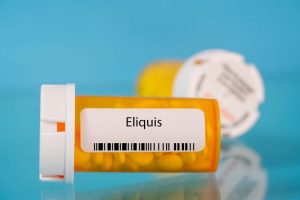
Eliquis is a brand-name prescription medication and is approved by the FDA to treat and prevent hazardous blood clots that might block blood vessels in your body.
Precisely, Eliquis can be used in adults to:
- Treat DVT, which is a blood clot that produces in a vein deep inside your body.
- Prevent stroke and blood clots in individuals with nonvalvular atrial fibrillation (NVAF).
- Treat PE, which is a blood clot that inhibits blood flow to your lungs.
- Prevent DVT that might cause PE in individuals who’ve had hip or knee replacement surgery.
- Prevent DVT or PE from recurring. After a patient has had initial treatment for a DVT or PE, Eliquis aids to prevent blood clots from recurring.
If you want to know what foods to avoid while on Eliquis, read further.
How does Eliquis work?
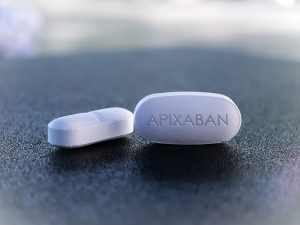
Eliquis is an anticoagulant medication or a blood thinner. It acts by blocking factor Xa, which is a clotting factor present in the blood that helps clots to form.
It is also known as Xa inhibitor. Due to this activity on FXa, Eliquis makes blood less likely to clot.
If you are thinking what foods to avoid while on Eliquis, the answer is given at the end of this blog.
Who can take Apixaban?

Eliquis is a prescription medication that is used to prevent blood clots from forming in people who have atrial fibrillation and are also at risk for developing a blood clot.
Eliquis is also used for the treatment of deep vein thrombosis (DVT) and pulmonary embolism (PE). Know more to understand about what foods to avoid while on Eliquis?
Apixaban is safe for people who:
- Does not have liver or kidney diseases
- Does not have a stomach ulcer
- Do not have a hypersensitive reaction to Apixaban or any other drug
- Does not have any injuries that are presently bleeding a lot, like a wound
- Does not have antiphospholipid syndrome. It is a condition that has an effect on the immune system and makes you more likely to get blood clots
- Did not have a recent spinal injury or surgery
- Did not have surgery to replace a heart valve
It is vital to inform your doctor about all other drugs you are taking, including OTC drugs, vitamins, and herbal supplements, as they might interact with Eliquis. In addition, Eliquis might interact with other drugs used for treating atrial fibrillation (Afib) or DVT/PE. Keep on reading to know about what foods to avoid while on Eliquis?
What are the side effects of Eliquis?
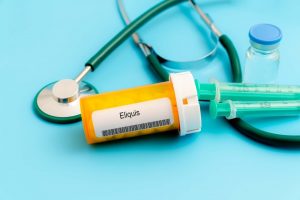
The most common mild side effects of Eliquis can be:
- Bleeding
- Bruising more easily than normal
- Anemia
- Fatigue
More serious side effects of Eliquis can be:
- Bleeding
- Allergic reaction
- High risk of blood clots on stopping the use of Eliquis early
- Blood clots in your spine with spinal techniques.
Below is mentioned what foods to avoid while on Eliquis?
What to eat while on Eliquis?
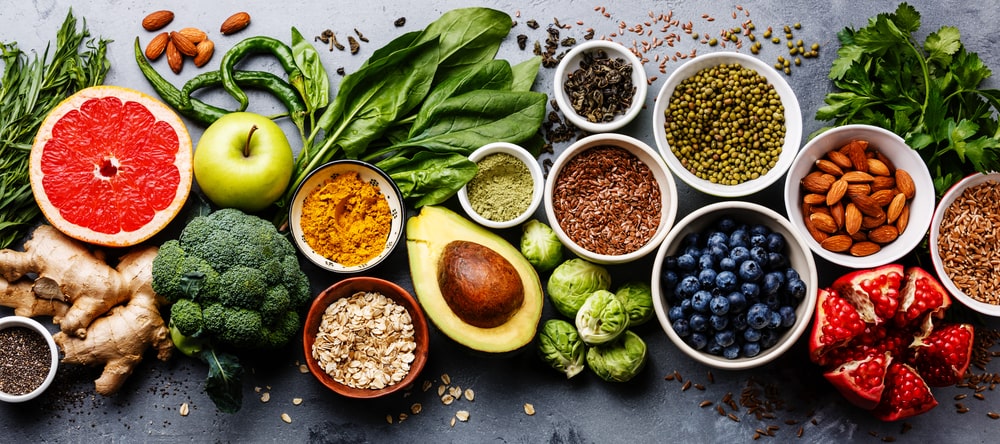
Apart from knowing what foods to avoid while on Eliquis, it is essential to know what to eat with Eliquis? Vitamin K-rich food items may decrease the efficacy of Warfarin, since it inhibits the effects of vitamin K in the blood.
Yet, Apixaban does not depend on the Vitamin K-dependent clotting pathway, and in its place works on clotting factor Xa. Consequently, Eliquis levels and efficacy are not changed by vitamin K consumption from foods like kale, spinach, broccoli, or brussels sprouts.
A lot of patients put on Eliquis initially have underlying heart problems. As such, a diet with ample of fruits, veggies, and nuts can be chosen over fast foods, red meat, or refined sugars. The AHA has some diet suggestions online.
What foods to avoid while on Eliquis?
You must avoid the use of grapefruit or grapefruit juice unless your healthcare provider instructs otherwise. It is good to talk to the concerned doctor about other foods that can interact with Eliquis and increase the risk of bleeding.
Eliquis does not show interaction with coffee and leafy greens that are found to contain high levels of vitamin K which may have an effect on a different anticoagulant called warfarin (Coumadin and Jantoven) that requires your body to keep a stability between the concentrations of vitamin K and warfarin in your system.
What foods to avoid while on Eliquis, these are the foods:
Luckily, Eliquis has not been found to have a bad interaction with any food items. The general culprits when it comes to the topic of food-drug interactions, including coffee, leafy greens, grapefruit juice, peppermint tea, or cranberry juice are safe to enjoy while consuming Eliquis. Following are the foods to avoid while on Eliquis:
Caffeine products (Limit Caffeine):

No direct interaction is seen between Eliquis and Coffee. Yet, a lot of patients taking Eliquis also have coronary artery disease (CAD), and often such people have limits put on their caffeine consumption by their doctor.
It was concluded that caffeine has the capacity to inhibit the metabolism of warfarin and enhance its plasma concentration and hence anticoagulant effects. Thus, patients should be advised to limit the frequent use of caffeine-rich products i.e. eliquis and tea or eliquis and coffee during warfarin therapy.
High-Fat Foods:

A diet rich in fast foods, saturated fats, or red meat are found to promote fatty plaques in your blood vessels. And, this may enhance the risk of heart disease and stroke.
High consumption of fat causes obesity, diabetes, heart disease, and possibly cancer, therefore low-fat diets are optimal. Processed carbohydrates have negative effects on metabolism; lower-carbohydrate or ketogenic diets with high fat content are better for health.
Also, obesity increases your risk of stroke and blood clots. Obese people with diet rich in fats are the same patients that are expected to end up on Eliquis.
Vitamin K containing foods:
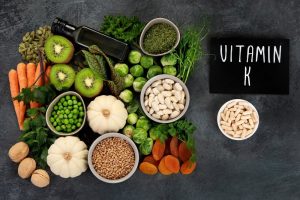
Data also suggests that vitamin K interacts adversely with apixaban in your body. This is due to the reason that vitamin K supplements or foods rich in vitamin K are found to thicken the blood.
Apixaban thins the blood and dissolves blood clots, hence people must avoid foods containing vitamin K to let apixaban do its task. These foods involve green tea, cranberry juice, Brussels sprouts, spinach, and grapefruit juice.
In addition, grapefruit juice comprises compounds that may offset the activity of blood thinners, which may cause increased bleeding for a few patients. Thus, it is better to adhere to a heart-healthy diet, with fruits, vegetables, nuts, and soluble fiber. Soluble fiber is found to reduce the levels of blood cholesterol, which may reduce the risk of atherosclerosis (fatty deposits) in the blood vessels.
Next in what foods to avoid while on Eliquis, are the herbs and supplements to avoid with Eliquis:
Also, it is vital to be careful while using drugs such as ibuprofen, naproxen, and diclofenac, which are collectively called as nonsteroidal anti-inflammatory drugs (NSAIDs), while using Eliquis. NSAIDs and aspirin together may cause an increased risk of bleeding when taken in combination with blood thinners like Eliquis.
Herbal Medicines:

St, John’s Wort should also be avoided while taking Eliquis. The combination can reduce the effectiveness of Eliquis. Other herbs that are not safe to be taken with Eliquis include turmeric, ginger, herbal teas, or gingko biloba.
Since herbals and supplements are not approved by the FDA just as other prescription drugs, it can be hard to come by quality data on likely interactions between herbal drugs and prescription drugs. It is good to look for a medical advice from your doctor before taking herbal or vitamin supplements.
Conclusion:
In conclusion, it’s important to exercise caution when combining natural supplements like turmeric, ginger, ginkgo biloba, or certain Chinese herbs with anticoagulant medications such as Eliquis, as they may heighten the risk of bleeding. To ensure safe and effective medication management, it’s advisable to consult with a healthcare professional before introducing any new supplements or herbs while on anticoagulant therapy. For reliable access to medications like Eliquis, individuals can explore options like Medsengage.com, providing a convenient and trustworthy platform to Buy Eliquis Online.
FAQs:
Can I eat broccoli while taking Eliquis?
Yes, you can eat broccoli while taking Eliquis. Broccoli is a nutritious vegetable rich in vitamins, minerals, and fiber, which can be part of a healthy diet. Eliquis is a blood thinner used to reduce the risk of stroke and blood clots. Eating a balanced diet, including vegetables like broccoli, can support overall health and complement your medication regimen. However, if you have any concerns or specific dietary restrictions, it’s always best to consult with your healthcare provider for personalized advice.
What vegetables should be avoided when taking Eliquis?
While on Eliquis or any blood thinner, it’s generally advisable to avoid excessive consumption of foods high in Vitamin K, as they can interfere with the medication’s effectiveness. Vegetables particularly rich in Vitamin K include kale, spinach, and Brussels sprouts. However, moderation is key, and it’s not necessary to eliminate these vegetables from your diet. It’s essential to maintain a consistent intake of Vitamin K-rich foods and to consult with your healthcare provider for personalized dietary advice while taking Eliquis.
Can you eat peanut butter while on Eliquis?
Yes, you can consume peanut butter while taking Eliquis. Peanut butter is not known to interact with Eliquis or affect its effectiveness. It’s a good source of protein and healthy fats, which can be part of a balanced diet. However, if you have any concerns or specific dietary restrictions, it’s always best to consult with your healthcare provider for personalized advice.
What tea can I drink while taking Eliquis?
While on Eliquis, you can generally enjoy a variety of teas without any significant interactions. Herbal teas like chamomile, peppermint, and green tea are popular choices. These teas offer hydration and potential health benefits without affecting the efficacy of Eliquis. However, if you have specific health concerns or are unsure about any potential interactions, it’s wise to consult with your healthcare provider for personalized guidance.
What foods to avoid while on Eliquis?
While on Eliquis, it’s advisable to avoid drastic changes in your intake of foods rich in Vitamin K, as they can affect the medication’s effectiveness. Examples include leafy greens like kale, spinach, and Brussels sprouts. Additionally, it’s best to moderate consumption of cranberry products, as they may interact with Eliquis. Alcohol should also be consumed in moderation, as excessive intake can increase the risk of bleeding. Lastly, if you have any concerns or specific dietary restrictions, consulting with your healthcare provider for personalized advice is recommended.
Does Eliquis Cause Leg Weakness?
Yes, Eliquis causes leg weakness. So, it is better to inform the doctor right away if you experience tingling, numbness, or muscle weakness, particularly in your legs and feet. Avoid the use of other medications unless they have been discussed with your healthcare provider.
How long does Eliquis stay in your system?
Eliquis is found to have a half-life of 12 hours and is seen to stay in your system for nearly 24 hours after your last dose.
When will generic Eliquis be available?
Generics for Eliquis were lately approved, but they might not be available until 2026 because of a patent dispute.
What type of pain medication is safe with Eliquis?
You may consume Paracetamol while on Apixaban. Avoid taking Aspirin or Ibuprofen while using Apixaban unless the concerned doctor approves it.
Why is Eliquis so expensive?
Brand name medications cost more as compared to their generic versions. Presently, since the generic medication, Apixaban is not available in the U.S., American clients have to buy brand name Eliquis and give more for their prescription medications.
How long to hold Eliquis before surgery?
Eliquis must be discontinued at least 48 hours before elective surgery or invasive procedures with a moderate or high risk of undesirable or clinically significant bleeding. In this blog, you got an understanding on what foods to avoid while on Eliquis.

